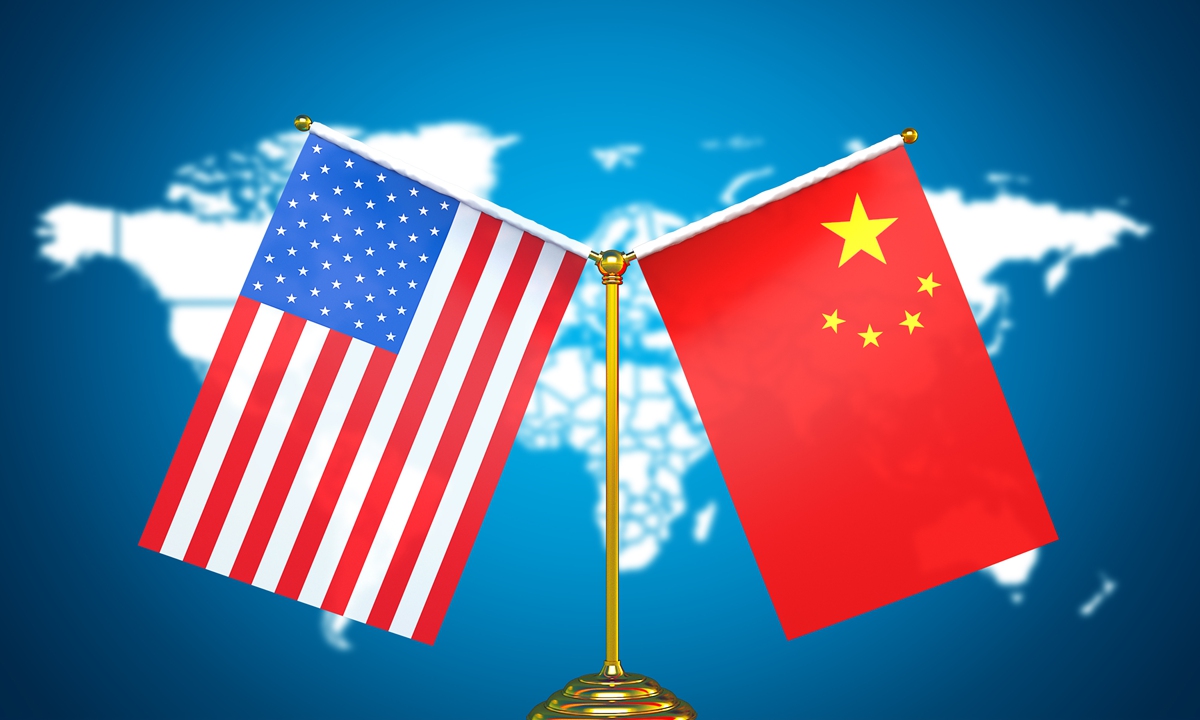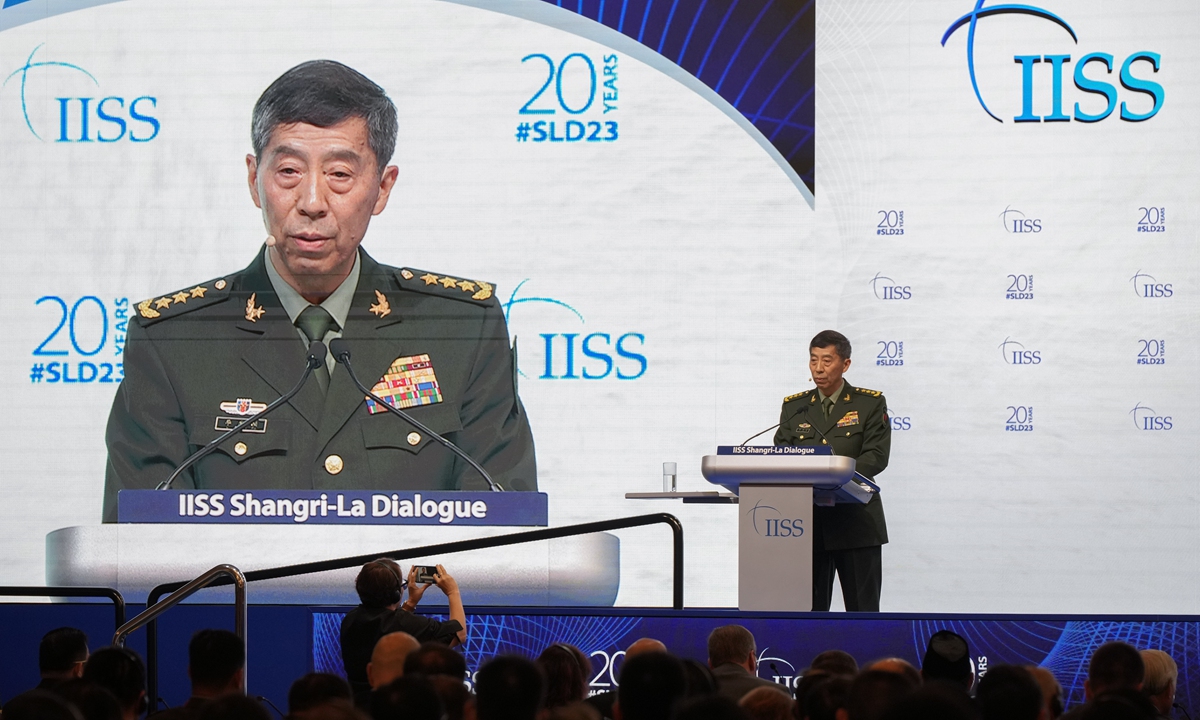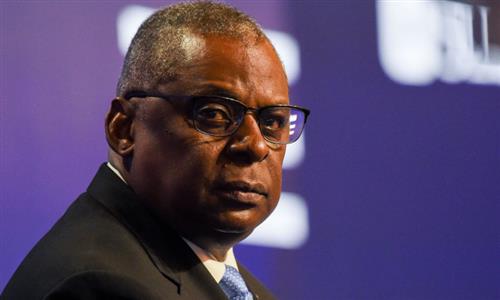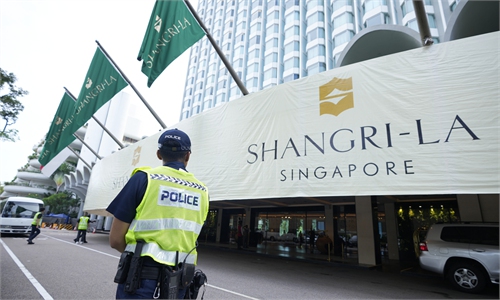The US military's hype about the "unprofessional interception" of a PLA fighter jet at this time is suspicious and absurd. On May 30, the US Indo-Pacific Command, in a tone of victimhood, accused a PLA J-16 fighter jet of carrying out "unnecessary aggressive maneuvers" on Friday against a US RC-135 reconnaissance aircraft in the so-called "international airspace" in the South China Sea, and the Pentagon also expressed "concern."
Given the frequent use of such tactics by the US, people immediately saw through the trick. The Shangri-La Dialogue is about to commence, and US Secretary of Defense Lloyd Austin is scheduled to attend. Over the years, every US defense secretary has criticized China during the Shangri-La Dialogue, making it an entertaining show of the event. This propaganda is most likely aimed at providing material and ammunition for Austin's speech and creating a special label of "China being irresponsible" and "China threat" for the Shangri-La Dialogue.
Last year, on the eve of the Shangri-La Dialogue, Canada, the US' petty follower, issued a statement through its Department of National Defense, claiming that Canadian patrol aircraft had "multiple interactions" with PLA military aircraft and accused the PLA of not adhering to international air safety norms.
Unsurprisingly, several days later, Austin mentioned it at the Shangri-La Dialogue, and attacked China. It probably won't be any different this time, and we will see in a couple of days how Austin plays the tricks of hyping the interception up.
The US military won't reveal the truth, but let's look at where the incident occurred. Right at China's doorstep. Data shows that the US military reconnaissance aircraft involved in this incident was less than 50 kilometers away from our coastline, meaning it was flying almost along our territorial waters and intentionally intruded into the training area of the PLA Navy Flotilla 17 for reconnaissance and disturbance. The PLA's response was in accordance with the law, regulations, and professional standards.
Currently, there are almost daily instances of US reconnaissance aircraft conducting close-in reconnaissance on us, and in 2022, the number of the US' close-in military reconnaissance missions against China has more than doubled compared with a decade ago. The intensity and frequency of US military activities in the South China Sea have significantly increased, and it has even instigated its allies' military aircrafts to provoke in the South China Sea.
What is the nature of the US military's behavior? It is easy to understand: It's like a peeping Tom who constantly peeks into others' windows, which can only make people think that it has ulterior motives. And every time it is caught red-handed, Washington tries to turn the tables. But are the Chinese warships and aircrafts too close to American ones, or are American warships and planes too close to China?
If Chinese military aircrafts flew thousands of miles each year to a location a few dozen kilometers from the US' coastlines and conducted over 1,000 close-in reconnaissance missions, how would the US react? Even a Chinese civilian unmanned airship that drifted over due to force majeure caused the US to panic, and even shoot it down with fighter jets and missiles, not to mention anything else.
In real life, we can call the police if we encounter a peeping Tom. But in the international community consisting of sovereign states, there is no police station to enforce the law to maintain justice and righteousness. What's more, the criminal even calls itself the "world police." The US military commits its perversions so blatantly, "rightfully," and recklessly because it thinks no one can punish it.
China will not tolerate such rogue behavior. Since there is no way to call the police, we can only enhance self-defense capabilities, and intercept and expel intruders, making counterattacks and responses based on how bad the US' moves are. To deal with the peeping Tom who crosses the line, we must pick up a stick and drive him away. In short, it is necessary to make him feel insecure and scared.
Americans should have understood this better. Americans pay so much attention to the right to self-defense at home. It is impossible to ask others to be indifferent and submissive to the US' provocative behavior on the international level.
When it comes to security, the US military leads others to insecurity, and others will undoubtedly do the same to the US. As a result, regional peace and stability are destroyed, and the risk of conflict increases sharply. As the culprit of the incident, the US military should certainly bear the responsibility. In a situation in which mutual trust is absent, it talks about the desire to communicate with the PLA while not restraining its dangerous moves in the air and sea. Being so contradictory, is there any sincerity in it?
US hypes on 'China threat' ahead of Shangri-La Dialogue
-
US hypes on 'China threat' ahead of Shangri-La Dialogue
Ahead of the 20th IISS Shangri-La Dialogue toward which there has been growing speculation about the meeting between the Chinese and US defense ministers, the US, following its commonly-used tactics, hyped again China's “unprofessional” intercept of a US spy plane ...
By Chen Qingqing and Liu XuanzunDiplomats of China, US meet amid tense military standoff; 'bilateral ties enter a more complicated phase of game' The recent interactions between senior Chinese and US officials are a contrast to the tit-for-tat actions and war of words .
China presents path to true, sustainable security for Asia-Pacific in contrast to US' bloc confrontation approach at Shangri-La Dialogue
On the Taiwan question, Li said China will strive for the prospects of peaceful reunification with utmost sincerity and greatest ...
Popularity of China's 'New Security Initiative' is inevitable: Global Times editorial
On Sunday, the last day of the Shangri-La Dialogue, Chinese State Councilor and Defense Minister Li Shangfu delivered a speech on "China's New Security Initiative."
When Americans say, "We will not flinch in the face of bullying and coercion," it is not only ridiculous but also chilling. It is like a muscular bully with a face full of arrogance waving a big stick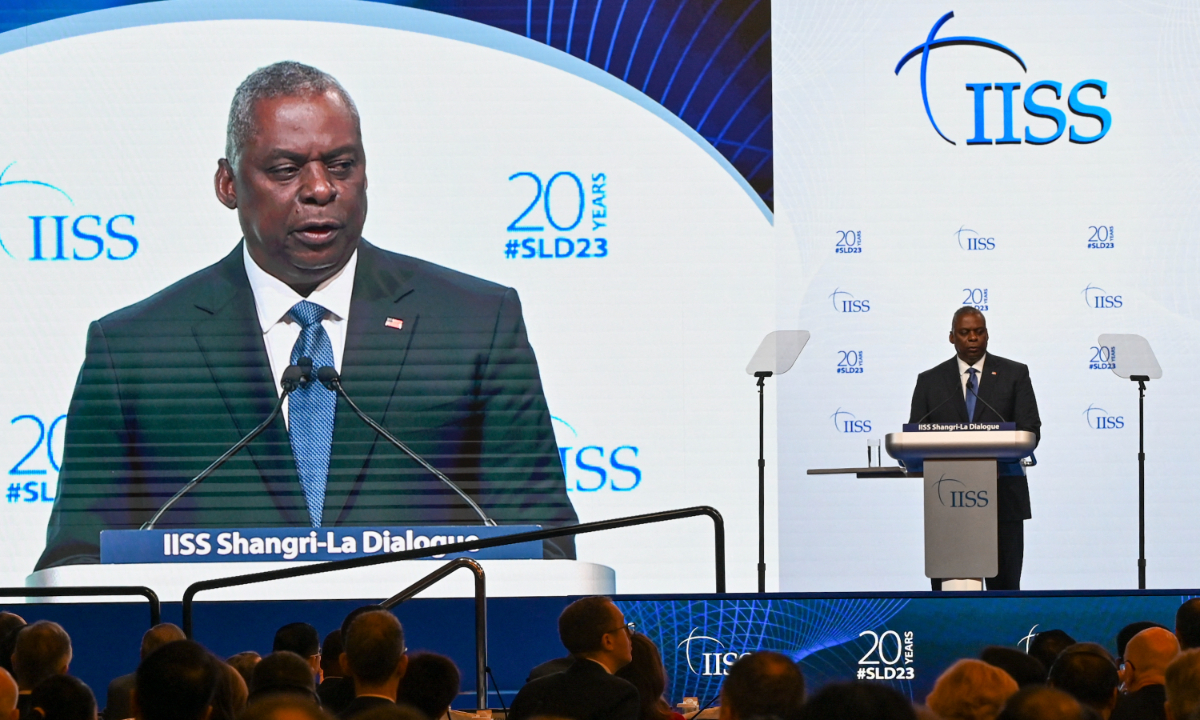 Impossible to push China-US military ties at US pace: Chinese expert on US defense chief's speech on Shangri-La Dialogue
Impossible to push China-US military ties at US pace: Chinese expert on US defense chief's speech on Shangri-La Dialogue It is impossible for China-US military ties to move forward according to the pace set by the US, under the ...
China's security vision much anticipated at key defense summit
The weekend started from Friday in Shangri-La Hotel, Singapore, with military uniforms and suits coming and going for bilateral meetings, speeches and discussions on security development in the Asia-Pacific region.
Chinese defense minister begins Singapore visit by enhancing ASEAN-China defense cooperation Chinese State Councilor and Minister of National Defense Li Shangfu began his visit to Singapore and met Singapore Defense Minister ..
Related posts:
19th Shangri-La Dialogue kicks off in Singapore, China draws security red line to US at defense ministers
Indo-Pacific Strategy ‘fanning confrontation’ as US defense chief made ‘most barefaced’ Shangri-La speech attacking China
CHINA AND INTERNATIONAL SECURITY COOPERATION by Gen. Wei Fenghe, State Councilor and Minister of National Defense, PRC
US seeks China's help to ease inflation in latest interaction
China's successful Test DF 17 hypersonic Missiles, the missile that cannot be intercepted


